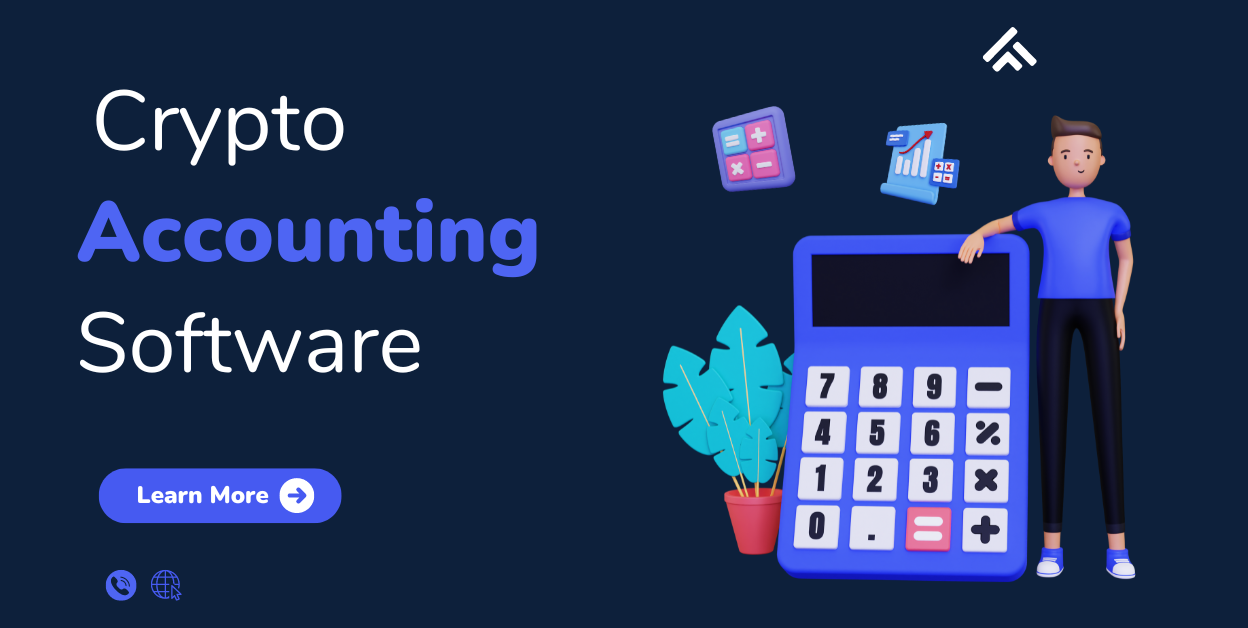The cryptocurrency market has growing in recent years, offering exciting investment opportunities alongside a unique set of challenges. Managing your crypto portfolio effectively requires not just an understanding of the market but also a grasp of the tax implications and accounting complexities.
This comprehensive guide explores into the world of cryptocurrency accounting software, equipping you with the knowledge to choose the best accounting software for Cryptocurrency for your needs in 2024. We’ll explore key features, pricing structures, and considerations to navigate the ever-evolving crypto landscape with confidence.
Why Crypto Accounting Software Matters?
Traditional accounting software often falls short when it comes to handling cryptocurrency transactions. Here’s why dedicated crypto accounting software is essential:
- Automated Transaction Tracking: Manually recording every crypto buy, sell, trade, and exchange can be time-consuming and error-prone. Crypto accounting software seamlessly integrates with exchanges and wallets, automatically importing and categorizing transactions for effortless record-keeping.
- Tax Compliance: Crypto transactions have tax implications that vary depending on your location and activity. With constantly evolving regulations, staying compliant can be a daunting task. Crypto accounting software helps you calculate capital gains, track cost basis, and generate tax reports for a smoother filing process.
- Portfolio Management: Monitoring your crypto holdings and performance across different exchanges and wallets can be difficult. Crypto accounting software provides a consolidated view of your entire portfolio, allowing you to track performance, identify trends, and make informed investment decisions.
- Security and Data Protection: Crypto accounting software offers robust security features to safeguard your financial data. Secure login protocols, data encryption, and multi-factor authentication ensure your information stays protected.
Choosing the Best Crypto Accounting Software: Key Features to Consider
With a plethora of options available, selecting the best crypto accounting software can be overwhelming. Here are some key features to prioritize when making your choice:
- Exchange and Wallet Integrations: Ensure the software integrates with the exchanges and wallets you use. Look for extensive integration options for broader compatibility.
- Supported Cryptocurrencies: Consider the software’s coverage of cryptocurrencies. While some cater to major coins, others support a wider range.
- Tax Calculation and Reporting: The software should provide accurate tax calculations for capital gains, income, and losses. Look for features that generate tax reports in formats compatible with your tax filing requirements.
- Transaction Categorization: Automatic transaction categorization helps organize your records and simplifies tax calculations. Choose software that accurately categorizes trades, swaps, staking rewards, and other crypto-specific activities.
- Portfolio Tracking and Reporting: Effective portfolio management requires tools for tracking performance, analyzing returns, and generating insightful reports.
- Security Features: Robust security measures are paramount. Look for features like two-factor authentication, data encryption, and secure login protocols to protect your financial data.
- Pricing Structure: Crypto accounting software pricing models can vary. Consider features, scalability, and your specific needs when evaluating pricing options. Free trials or limited free tiers offered by some platforms can help you test different software before committing.
Top Crypto Accounting Software Contenders in 2024
The crypto accounting software landscape is constantly evolving. Here’s a breakdown of some of the leading contenders in 2024, along with their strengths and considerations:
TaxBit
Renowned for its robust tax features and compliance adherence, TaxBit caters to both individuals and businesses. It offers real-time tax calculations, integration with major exchanges and wallets, and generation of tax forms. However, its pricing structure can be on the higher end for individual investors.
Koinly
Koinly boasts a user-friendly interface and extensive exchange and wallet integrations. It supports various tax reporting formats and offers automatic transaction categorization. The free tier allows limited transactions, while paid plans scale with increasing needs.
CoinTracker
CoinTracker is a popular choice for individual investors seeking an affordable solution. It offers basic tax calculations, portfolio tracking, and automatic transaction imports. However, advanced features like tax optimization and audit trails might be missing in the lower tiers.
Ledgible Tax
Ledgible Tax focuses on tax compliance for individuals and businesses. It offers advanced tax features, secure data storage, and support for various tax jurisdictions. Similar to TaxBit, its pricing structure might be less suitable for casual crypto investors.
Accointing
Accointing caters to a global audience, supporting tax regulations in multiple countries. It offers automatic transaction classification, tax report generation, and a user-friendly interface. Freemium options exist, but advanced features require paid subscriptions.
Conclusion
Cryptocurrency represents a dynamic and complex investment landscape. With the right accounting software and best practices in place, you can navigate the cryptoverse with confidence, ensuring accurate record-keeping, tax compliance, and informed investment decisions.
By understanding the features, strengths, and weaknesses of various software options, you can select the tool that perfectly aligns with your crypto accounting needs in 2024 and beyond.
Remember, staying informed and adapting to the evolving landscape is key to mastering your crypto portfolio and achieving your financial goals.

